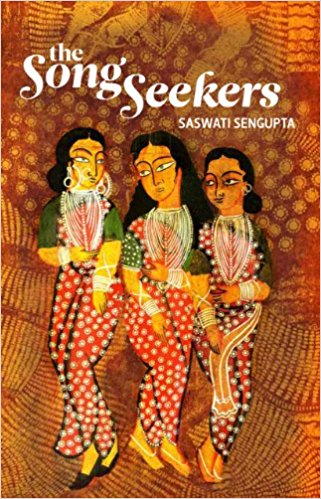It is in the kitchen of the Chattopadhyay household that Khema, the daughter of a low caste Bagdi household retainer, Bamundi, a poor brahmin cook, Pishi, the widowed aunt who is maintained as a poor relative and Uma, the curious and dissenting housewife, meet to form a community. The ordinary, feminine space of the kitchen is where the marginals and the misfits in a modern, self-consciously proud brahmin household, come together to form a community around reading the myths of goddesses—thereby changing a traditional female workplace into a community of women thinkers and workers. It is this community of readers which motivates Uma, the literate and mobile one, to finally visit the National Library in Kolkata where she finds the key to the secret of the goddess. And this final space of her discovery draws attention to the medium in which this novel has lived and grown, which is the careful and imaginative research that has been carried out by the author and clearly listed in the appendix to the novel. That the two key spaces in Saswati Sengupta’s Song Seekers are the kitchen and the library is not without significance for the novel form itself. The way the kitchen works in this novel ties it to the tradition of self-reflexive feminism that dwells on both the internal social differences within women themselves as well as the possibilities and impossibilities of marriage as a way of forming female subjectivity. The library, on the other hand, opens out a new possibility in what can be called the Archive Novel.
June 2013, volume 37, No 6

